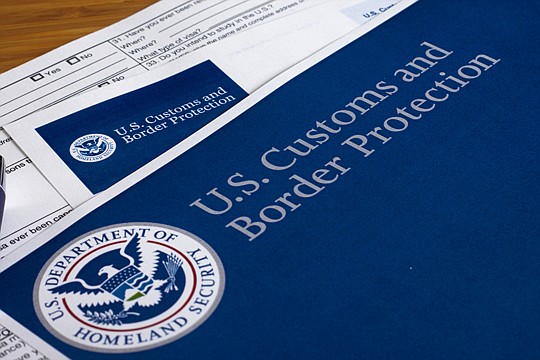
From floridarealtors.org
Orlando real estate broker Rosana Almeida, who specializes in sales to international buyers, met with investors in Mexico last year, but said the business climate there isn’t ripe for a return this year.
Potential buyers at a sales expo three months ago in Mexico City raised concerns about purchasing real estate in a country with shifting travel, immigration and trade policies, Almeida said. Brazilian buyers have voiced similar concerns, she added.
“People are asking more questions than they used to,” said the longtime agent, who surveyed her agents. “They ask: ‘If I buy a property in Florida, can I have a different kind of green card?’ And I tell them one thing has nothing to do with another.”
Supporters of President Donald Trump say his experience with foreign capital in real estate ventures will benefit the U.S.
Others, though, question whether his policies will send a message that the U.S. is not as friendly to people from other countries as it had been in the past.
Without question, said Margaritaville Orlando Resort Partner James Bagley, vacation homebuyers from other countries have become more cautious about spending time and money in Florida and the U.S. as a whole.
“The international market is very sensitive to political overtures, and there’s a growing sense of caution,” he said. “When political leaders create an atmosphere of populism and nationalism, our international visitors take note. And as people become cautious, they put the brakes on their wallet.”
Orlando, and Florida in general, are among the few U.S. markets that have been flush with international buyers. Last year, the state garnered 22 percent of U.S. purchases made by foreign buyers, according to the National Association of Realtors.
With foreign buyers purchasing an estimated $102 billion of U.S. real estate in 2016, the market is sizable.
Foreign buyers have helped hoist Florida’s real estate market into recovery at a slightly faster rate than domestic buyers, according to a study by Trulia.
The state’s homeownership rate for foreign-born buyers increased 5 percent during a five-year period that ended in 2014, a greater increase than 41 other states.
Meanwhile, Florida’s homeownership rate for buyers from the United States increased by just 4 percent during that time.
For now, Bagley said, traffic and sales have not changed markedly, “but we’re getting a lot of questions on the sales floor.”
“Obviously, our Mexican clientele is cautious,” Bagley said. “They want to understand what the new administration policies mean for them.”
A strong dollar and rebounding home prices have already begun to diminish the state’s star power among international buyers.
Even though Florida was still the top state for those buyers last year, the Sunshine State’s share of U.S. sales to foreign buyers slid to 22 percent last year from 31 percent five years earlier, according to reports by the National Association of Realtors.
In Celebration, LaRosa Realty agent Victor Nawrocki said Central Florida’s appeal to foreign buyers is particularly important because they typically purchase second homes, and those aren’t essential if times get tough.
“I’m taking a wait-and-see attitude myself,” said the agent based in Osceola County. “But anytime there’s uncertainty, people get concerned. If the economy crashes, their second home is the first thing to go.”
Almeida and other real estate agents say it’s too early to tell if Trump’s select travel bans, tougher immigration policies and proposals to increase trade tariffs could impact Central Florida’s slice of the international real estate market.
She said she expects to know more after upcoming visits to countries including Colombia in March, Brazil in April and Europe in May.
Orlando real estate agent Theodora Uniken Venema said she caters to buyers from the Netherlands and they are more interested in bottom-line returns on investment than currency exchange-rate fluctuations and rhetoric about foreign policy.
“They’ve been investing in the U.S. for 400 years,” she said. “They come to U.S. for opportunity. There are tax advantages regardless of whether the dollar is high or low. For commercial investors, the numbers have to work. They don’t care what the media says or what’s on CNN.”
Trulia Chief Economist Ralph McLaughlin said international buyers are likely to be “spooked” by the uncertainty around immigration and travel policies, even though their decisions are based more on the movement of capital than immigration.
“Thus far, there are few, if any, signs that the federal government will restrict movement of dollars into the U.S.,” McLaughlin said. “In fact, the new administration is more concerned about the movement of capital leaving the country.”